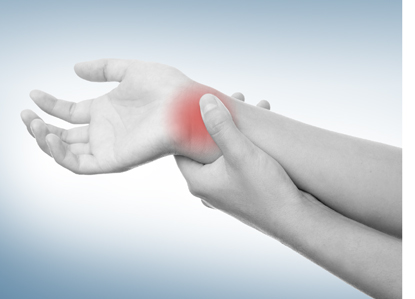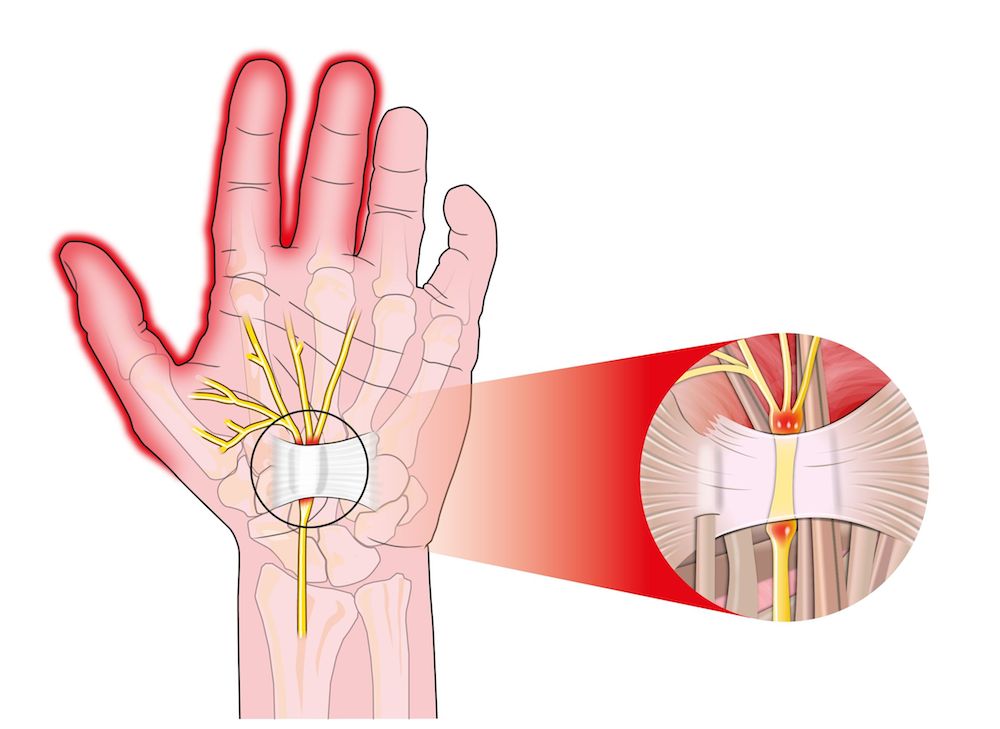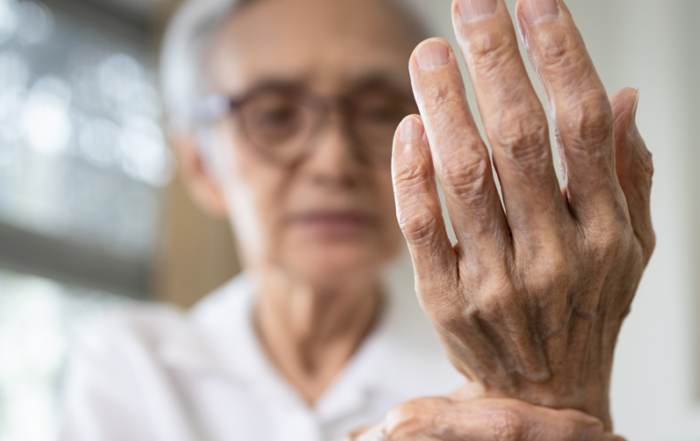Fort Wayne chiropractor Dr. Richard Busch III of the Busch Chiropractic Pain Center is highly acclaimed and nationally known for his drug-free, nonsurgical approaches for treating patients. A primary goal of Dr. Busch is restoring patients back to their normal and productive lives without surgery and pain medications. In addition to developing the DRS Protocol® for back and neck pain and the Busch Neuropathy Protocol™ for treating neuropathy symptoms. Dr. Busch has developed a protocol for the treatment of carpal tunnel syndrome. Patients suffering from hand and wrist pain can be treated with the Busch Stem Cell Stimulation Protocol™, as a successful and noninvasive alternative to carpal tunnel surgery. If carpal tunnel syndrome is not treated, the loss of feeling, loss of function and muscle wasting can become permanent.

What is Carpal Tunnel Syndrome?
Millions of Americans suffer from Carpal Tunnel Syndrome. This is a condition that affects the hand, wrist, and forearm.
The tunnel is a narrow canal at the base of the palm that is defined by the (carpal) bones of the wrist and the overlying transverse carpal ligament. The flexor tendons to the fingers and thumb and the median nerve pass through the tunnel. The median nerve provides sensation to the thumb, index, and long fingers, and to part of the ring finger. It also provides strength to the muscles at the base of the thumb. Carpal Tunnel Syndrome is a collection of symptoms resulting from compression or interference of the median nerve.
What are the Symptoms of Carpal Tunnel Syndrome?
Carpal Tunnel symptoms can start with numbness and tingling at night often waking the patient from a sound sleep. Pain in the fingers and thumb, index finger and thumb can be most painful. The patient will awaken with these symptoms and shake the hand or hold it in a dangling position to relieve the pain. As the condition progresses, the symptoms become more noticeable and painful during the day and can increase while driving, or doing something as simple as brushing hair or holding a coffee cup. The patient also may soon begin to notice weakness and may drop things. Procrastination on the patient’s part can cause nerve damage over time.
The most common symptoms include:

Causes of Carpal Tunnel Syndrome
Carpal tunnel syndrome is a common condition that can significantly affect hand function and comfort. It can arise from various factors that exert pressure on the median nerve within the narrow passageway of the wrist, known as the carpal tunnel. Recognizing the early signs and risk factors associated with carpal tunnel syndrome can help avoid the progression of symptoms and ensure better long-term hand and wrist health.
Some of the causes of carpal tunnel include:
- Inflammation
- Degenerative and arthritic conditions, herniated and degenerative disc in the cervical spine
- Vertebral subluxation in the cervical spine or misalignment
- Repetitive use; repeating the same hand motions over a prolonged period of time can cause swelling and inflammation, as well as keyboard use
- Medical conditions that can cause the condition to get worse are but not limited to diabetes, rheumatoid arthritis, and thyroid disease
- Tennis Elbow
Considering carpal tunnel surgery?
Are you considering carpal tunnel surgery? It is important that you know and understand the risks before you decide to have surgery. Possible surgical complications include:
- Infection
- Persistent symptoms
- Recurrent symptoms
- Major nerve injury and damage
Returning symptoms of pain and tingling are possible after carpal tunnel surgery. Recurrent symptoms can be caused by scar tissue wrapping around the median nerve. The nerve may also scar down to surrounding structures within the carpal tunnel. Portions of the transverse carpal tunnel ligament may re-form and cause pressure on the nerve. The synovial tissue that surrounds the tendons may thicken over time causing further squeezing of the nerve. The outcome of revision surgery may not be as good as the original surgery. Major nerve injury is irreversible damage to the median nerve, branches of the median nerve or nearby nerves are among the most serious complications of carpal tunnel surgery. If a nerve injury does occur, there can be pain and permanent loss of feeling and function.
Carpal tunnel surgery alternative in Fort Wayne
At Busch Chiropractic Pain Center you will receive a comprehensive examination and film evaluation by Dr. Richard Busch. Whether you have been told you may need surgery or are dealing with pain that seemed to happen without reason, we can help most wrist pain problems by treating with the Busch Stem Cell Stimulation Protocol™.
The treatment protocol employs many different treatment aspects: These therapies include chiropractic care, focused wave therapy, nutrition as well as the leading edge noninvasive neurological treatment therapies. Carpal tunnel treatment with the Busch Stem Cell Stimulation Protocol™ is nonsurgical, safe, and effective.
Get relief from carpal tunnel pain without drugs or surgery! Contact Busch Chiropractic Pain Center today to learn more about our nonsurgical carpal tunnel syndrome treatment protocol. Schedule an appointment today!
Hear from one of our carpal tunnel patients
Stan suffered with carpal tunn syndrome for 12 years before coming to Busch Chiropractic. Now, he’s pain-free!
What Are Your Alternatives to Carpal Tunnel Surgery?
No matter your occupation or lifestyle, your hands are a vital part of your everyday life. If you have developed[...]
Carpal Tunnel? Surgery Is Not Your Only Option!
Are your hands and wrists weak? Maybe you constantly feel numbness, pain, or a pins-and-needles sensation? If you said yes to[...]
5 Possible Causes of Numbness in the Hand
Numbness in the hand can be alarming, especially if you can't spot the cause of the sensation. What causes a numb[...]





